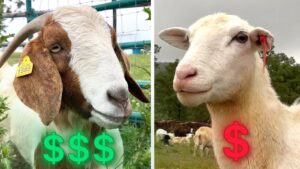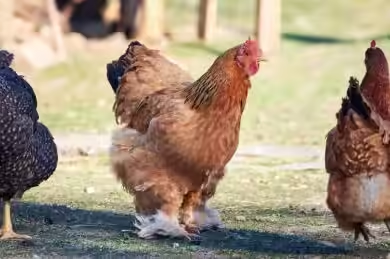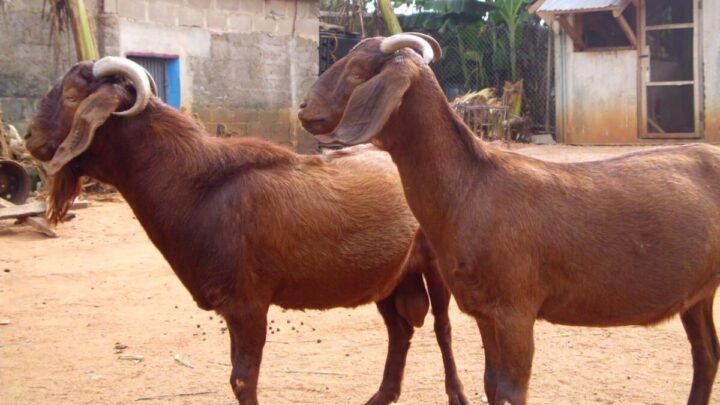Last updated on August 15, 2025
So, you’re an aspiring or current small-scale farmer, and you’re thinking about a new venture. The age-old debate of sheep versus goats for profitability is a huge decision. Both are excellent choices for diversifying your livestock, but the answer to “which is more profitable?” isn’t a simple one. In short: Goats often offer more diverse revenue streams (meat, dairy, land clearing) but require more expensive, robust fencing. Sheep are generally easier to contain and have a strong market for both meat and wool, making them a simpler choice for those with good pasture. This guide will break down every factor to help you decide which is right for your farm.
Quick Comparison: Key Differences Between Sheep and Goats
Before we get into the financials, let’s look at the core sheep vs. goat differences. While they may look similar, their distinct behaviors and needs significantly impact how you’ll manage them. You’ll find this quick table really helpful for understanding the differences. This also directly addresses the question of “what are 5 differences between sheep and goats?”.
| Feature | Sheep | Goats |
|---|---|---|
| Behavior | Flocking: They have a strong instinct to stay together, which is both a pro and a con. This makes them docile and easy to move as a group, but it also means they’re prone to “flock mentality,” where one sheep’s panic can cause a stampede. They have a strong pecking order. | Herding: They’re independent, curious, and social. They’ll often scatter and explore, which can be a fun challenge! They are more willing to interact with you and their environment, often forming a social hierarchy within the herd. |
| Diet | Grazer: Think of them as lawnmowers. They prefer to eat short grasses and clover, and they’re excellent for maintaining your pastures. Their narrow mouths make them well-suited for close grazing, and they tend to avoid browsing on woody plants. | Browser: They’re more like brush hogs. They prefer to eat brush, shrubs, and tree leaves, making them great for land clearing. Their ability to stand on their hind legs and reach high branches gives them access to forage that sheep can’t get to, but it also means they can destroy trees. |
| Intelligence | They’re generally less curious and easier to contain; we don’t think of them as problem-solvers. This can make management easier, as they’re less likely to try and escape or destroy things out of boredom. | They are very intelligent, clever, and notorious escape artists. You’ll need to stay one step ahead of them when it comes to fencing and housing, as they can quickly learn how to open gates or climb over barriers. |
| Physical | They drop their tails down, have a split upper lip, and typically lack a beard. They also have scent glands between their toes, which can be a factor in hygiene. | They hold their tails up, have an intact upper lip, and often have beards, especially bucks. They have horns that are typically swept back, and they have scent glands on their heads. |
| Shelter | Fairly low-maintenance; they can handle the cold pretty well as long as they are kept dry. A simple three-sided shelter is often enough to protect them from the elements. | They need more protection from rain and wind and require well-ventilated housing. Their hair coats offer less insulation than a sheep’s wool, making them more susceptible to cold and wet conditions. |
Ultimately, your day-to-day management will be heavily influenced by these core differences. Now that we have a better grasp of their behavior, let’s dive into the most important question: which one can make you more money? This is where we answer “Which animal makes the most profit?”.



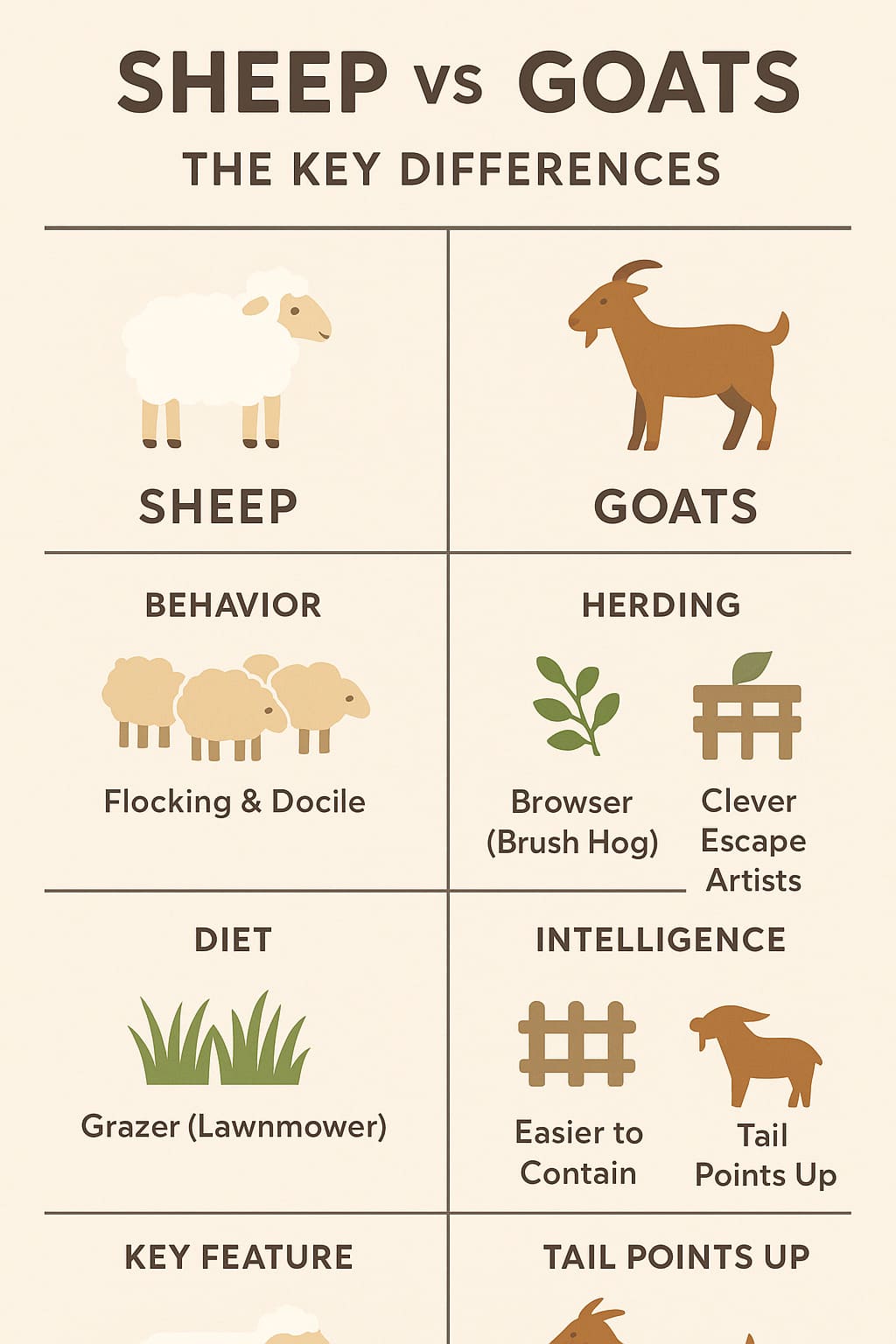
The Profitability Breakdown: Which Animal Makes More Money?
This is the core of your decision. The true profitability of either animal depends on the revenue streams you want to focus on. What are you most excited to sell?
Revenue Stream 1: Meat Production
Both lamb and goat meat (chevon) are valuable products, and the market for both is strong. Lamb has a strong market in many regions, while chevon is a staple in many ethnic cuisines. You might be asking, “which meat is more tasty, goat or sheep?” Well, the flavor profile of chevon is often described as richer and more robust than lamb, which can be milder.
The market price for both can vary, so it’s a good idea to research demand in your area, particularly in local markets and during festive periods like Eid al-Adha (Sallah), where demand for meat is exceptionally high. Goats also have a higher kidding rate (often twins or triplets), which can mean a faster turnover for meat production.
Revenue Stream 2: Dairy Production
While sheep milk is known for its high-fat content and is excellent for making artisanal cheese, I’ve found that dairy goats are generally more productive. Breeds like the Nigerian Dwarf and Nubian are popular for their milk, which is used for drinking, cheese, soap, and other products. Goats have a longer milking season and a higher yield per animal than most dairy sheep breeds, making them a more profitable choice if dairy is your main focus.



Revenue Stream 3: Fiber Production
This is where sheep truly shine with wool, and fiber can be a significant revenue stream. But did you know goats also produce valuable fiber? Angora goats provide mohair, and Cashmere goats produce luxurious cashmere. The market for fiber is specialized, so you’ll need to research local options for processing and sales. Wool requires regular shearing, which is a significant labor and cost factor, while mohair and cashmere are typically sheared once or twice a year.
Revenue Stream 4: Breeding Stock & Other Opportunities
Selling breeding stock to other farmers is a profitable option for both sheep and goats. If you have high-quality, registered animals from a reputable line, you can command a premium price for lambs or kids, often selling for much more than the market rate.
The Most Profitable Breeds to Raise
Choosing the right breed for your goals is essential for maximizing revenue. This section answers “What sheep brings the most money?” and “What is the most profitable goat to raise?”.
- For meat sheep, breeds like the Dorper and Katahdin are excellent choices. We love them because they’re hair sheep that shed their coats, eliminating the need for expensive shearing. However, don’t overlook local breeds like the Uda and Balami sheep, which are highly valued for their meat and are well-adapted to the Nigerian environment.
- For meat goats, the Boer goat is the most popular due to its rapid growth and high-quality meat. However, don’t overlook the extremely hardy West African Dwarf (WAD) goat, which is perfectly adapted to the Nigerian climate and highly sought after in local markets. The Kiko is another great option, known for its hardiness and ability to thrive on rough forage.
- For dairy goats, the Nigerian Dwarf is prized for its high-butterfat milk, while the Nubian offers high milk volume and a longer lactation period.
Making a choice here is about aligning your goals with the animal’s natural strengths. Now, let’s balance these revenue opportunities with the real-world costs of raising these animals.





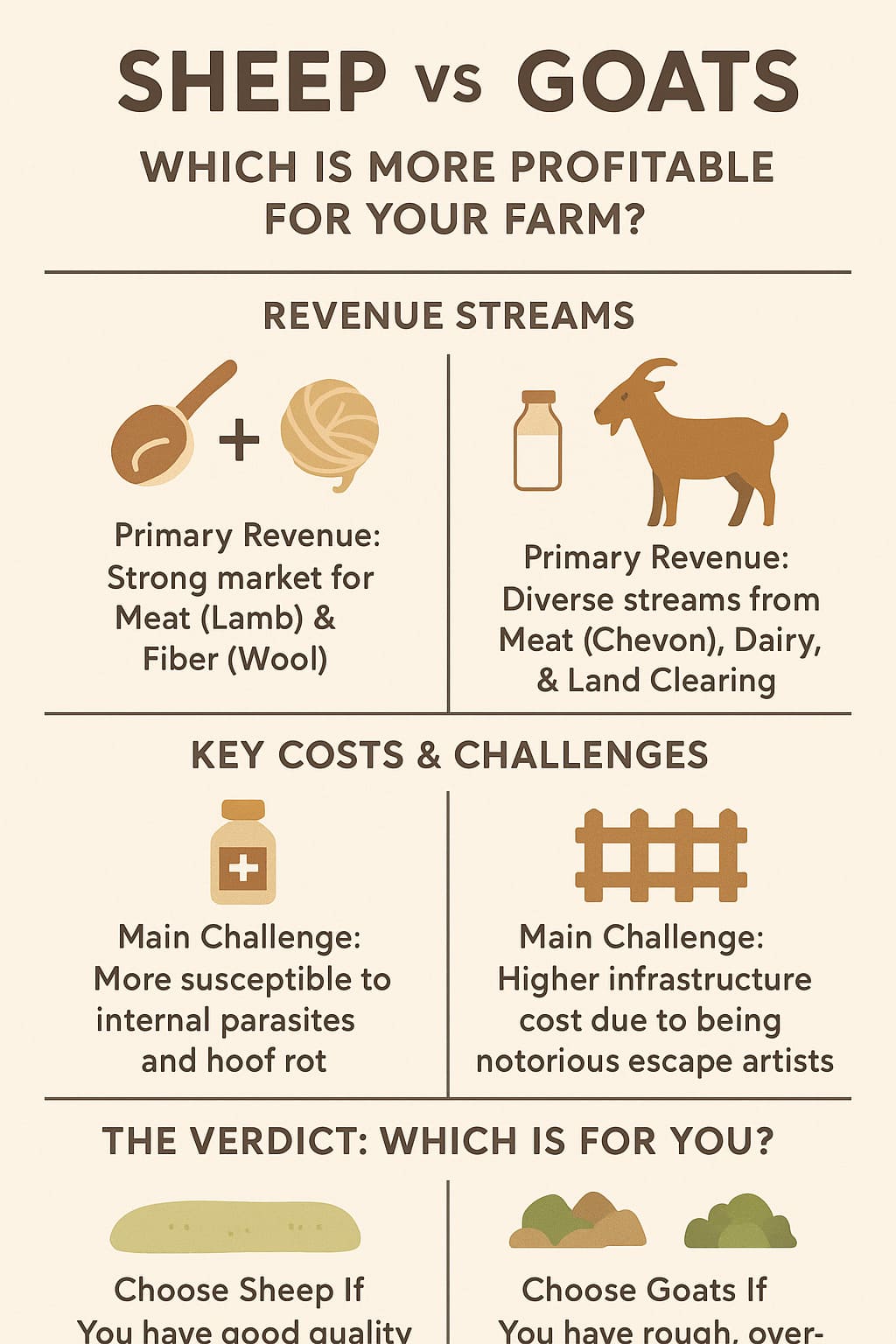
The Cost Analysis: Are Goats More Expensive Than Sheep?
Profitability isn’t just about what you earn; it’s also about what you spend. Let’s be real—the expenses can add up! This section will directly answer the question, “Are goats more expensive than sheep?”.
Fencing and Housing
It can be incredibly frustrating when you discover your goats have escaped for the third time in a week! That’s because goats are notorious escape artists. You’ll need more robust and often more expensive fencing, such as woven wire or multiple strands of electric fence, than you would for sheep. This can be a significant upfront investment, potentially running into tens of thousands of Naira (₦) depending on the size of your pasture. With their strong flock instinct, sheep are generally much easier to contain with a simple field fence.
Feed and Forage
This is where that grazer vs. browser difference is key. If you have good quality pasture, sheep are your best friend. Goats, however, prefer weeds and brush, so if your land is overgrown, they can be a cost-effective way to clear it while getting a great meal. But you should always supplement their diet with a high-quality forage and mineral supplements to ensure they receive proper nutrition.
Veterinary Care and Health Management
Both animals have similar basic veterinary needs. However, in my experience, sheep can be more susceptible to internal parasites and hoof rot, particularly in wet environments. Goats, being more curious, can get into trouble by eating things they shouldn’t, and they can be prone to specific diseases like coccidiosis, which is especially dangerous in kids. Regular deworming and vaccination protocols are essential for both.



Labor and Time Investment
This is an often-overlooked cost. While both require daily chores like feeding and watering, goats tend to be more time-intensive. Their intelligence and need for constant fence checks can add to your daily workload. Sheep are often a more “hands-off” option once a good routine is established.
The cost side of the equation is just as important as the revenue side. Let’s consider the day-to-day management to help you get a full picture of what’s involved. This is where we answer “Are sheep or goats easier to raise?”.
Management & Ease of Raising: Are Sheep or Goats Easier?
Let’s talk about the day-to-day labor and temperament. This is a big factor in your quality of life as a farmer.
Behavior and Handling
A common question is “which is more aggressive, sheep or goat?” Generally, sheep are more docile due to their strong flocking instinct. This is why “sheep are preferred over goats” in some situations where a farmer needs to move a large group of animals easily. Goats are more independent and can be more challenging to handle, but they also form strong bonds with their owners. You’ll find that handling, such as for hoof trimming or vet care, can be easier with sheep.
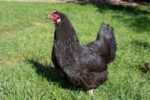




Breeding and Reproduction
Both animals have relatively short gestation periods, but they differ slightly. Sheep typically have a gestation of around 5 months (147 days), while goats are slightly longer at about 150 days. Goats are more likely to have twins or triplets, which can accelerate herd growth but also means more potential issues with birthing and caring for the kids.
Minimum Flock/Herd Size for Profitability
“What is the minimum flock size for sheep?” and “How many sheep does it take to be profitable?” are common questions. This is highly variable, but we’ve seen that most farmers suggest starting with at least 10-20 ewes or does to see a meaningful return on your investment (ROI). This size allows for a consistent supply of products and helps to offset initial infrastructure costs, which could run into hundreds of thousands of Naira (₦). The more animals you have, the more you can benefit from the economies of scale.
Beyond the daily tasks, you’ll also need to be ready for the challenges that come with raising livestock. Next, we’ll cover the common problems you might encounter.
The Challenges: Problems with Sheep and Goat Farming
To be a trustworthy source, we have to be honest about the downsides. Let’s look at the problems with sheep and goat farming. This section will address “What are three disadvantages of sheep and goat production?” as well as the specific problems with each.




Common Problems in Sheep Farming
- Internal Parasites: They can be very susceptible to parasites, especially on wet pastures. Careful pasture management and a targeted deworming schedule are essential.
- Predation: Sheep are highly vulnerable to predators like coyotes and domestic dogs. A livestock guardian dog is often a necessity, or you may need to bring them into a secure barn at night.
- Hoof Rot: This can be a major issue in wet conditions, requiring attentive foot care and regular hoof trimming to prevent lameness.
Common Problems in Goat Farming
- Fencing: This is arguably the single biggest challenge. Goats are masters of finding and exploiting weaknesses in fencing. You’ll need to regularly inspect your fences for gaps, and be prepared to make repairs.
- Diseases: They can be susceptible to diseases like coccidiosis, especially in younger animals. Their browsing habits can also expose them to toxic plants.
- Intelligence: Their cleverness can lead to escape and other mischief, so be prepared for some surprises!
Regulatory and Market Challenges
Don’t forget to research local regulations, as they can differ between sheep and goats. Always check with your local agricultural extension office or the State Ministry of Agriculture for specific guidelines in your area.
Understanding the potential pitfalls is crucial for long-term success. With that in mind, let’s wrap up with some of the most frequently asked questions on this topic.
Frequently Asked Questions (FAQ Section)
Which livestock is the most profitable in Nigeria?
It really depends on your market and management, but sheep and goats often offer a faster ROI than cattle due to their shorter gestation periods and higher kidding/lambing rates. Chickens for eggs are also a popular and profitable option, especially for a steady income stream.
Are goats easier to raise than cows?
Generally, yes. They are smaller, have a lower feed intake, and mature faster. However, their intelligence and need for secure fencing can be more challenging to manage. Cows require more pasture space and a larger investment, so goats are a great way to start with a smaller footprint.
What kind of goat leads sheep to slaughter?
This is a piece of trivia referring to a Judas goat. A Judas goat is a trained goat that helps lead sheep to a specific location, like a new pasture or a holding pen. The name comes from their usefulness in managing large flocks.
How much land do sheep or goats need?
A common guideline is about 5-10 sheep or goats per acre of quality pasture. However, this can vary dramatically based on the quality of your land and whether the animals are grazing or browsing. Goats that browse on brush and weeds may be able to thrive on land that would not support sheep.
Do I need a livestock guardian animal?
For most small farms, a livestock guardian dog is a wise investment, especially for sheep, which are highly vulnerable to predators. Breeds like the Anatolian Shepherd or Great Pyrenees are known for their protective instincts. While goats are a bit more self-sufficient, a guardian animal can provide peace of mind and prevent losses.
What are the biggest challenges for new farmers?
The three most common challenges are predator control, internal parasite management (especially in wet environments), and securing proper fencing. These are all manageable with careful planning and a good routine, but they can be a surprise for those who are just starting.




How much water do sheep and goats drink?
Access to clean, fresh water is essential. On average, a sheep or goat will drink between 1 and 2 gallons (3.8-7.6 litres) of water per day. This amount will increase significantly in hot weather or if they are pregnant or lactating.
How do I price my products in the local market?
The best way to determine a fair price is to visit your local market and speak with other farmers and butchers. Pricing is often tied to the animal’s weight, health, and breed. During a high-demand period like Sallah, you can often command a higher price for healthy, well-fed animals.
The Verdict: Which Animal is Right for Your Farm?
There is no absolute winner in the sheep vs. goats profitable debate. The best choice is the one that aligns with your resources and goals.
- Choose Sheep if: You have good quality pasture, a strong market for lamb or wool, and prefer more docile and easy-to-manage animals.
- Choose Goats if: You have varied land with lots of brush, a market for goat milk or chevon, and are prepared for their clever, curious, and sometimes challenging nature.
Ultimately, whether you choose the steady companionship of sheep or the clever antics of goats, your success will hinge on careful planning, good management, and a passion for the work. Both animals can be a rewarding and profitable addition to a small farm when their needs are met.
We’d love to hear from you! What has been your experience? Share your own tips for raising profitable sheep or goats in the comments below!
